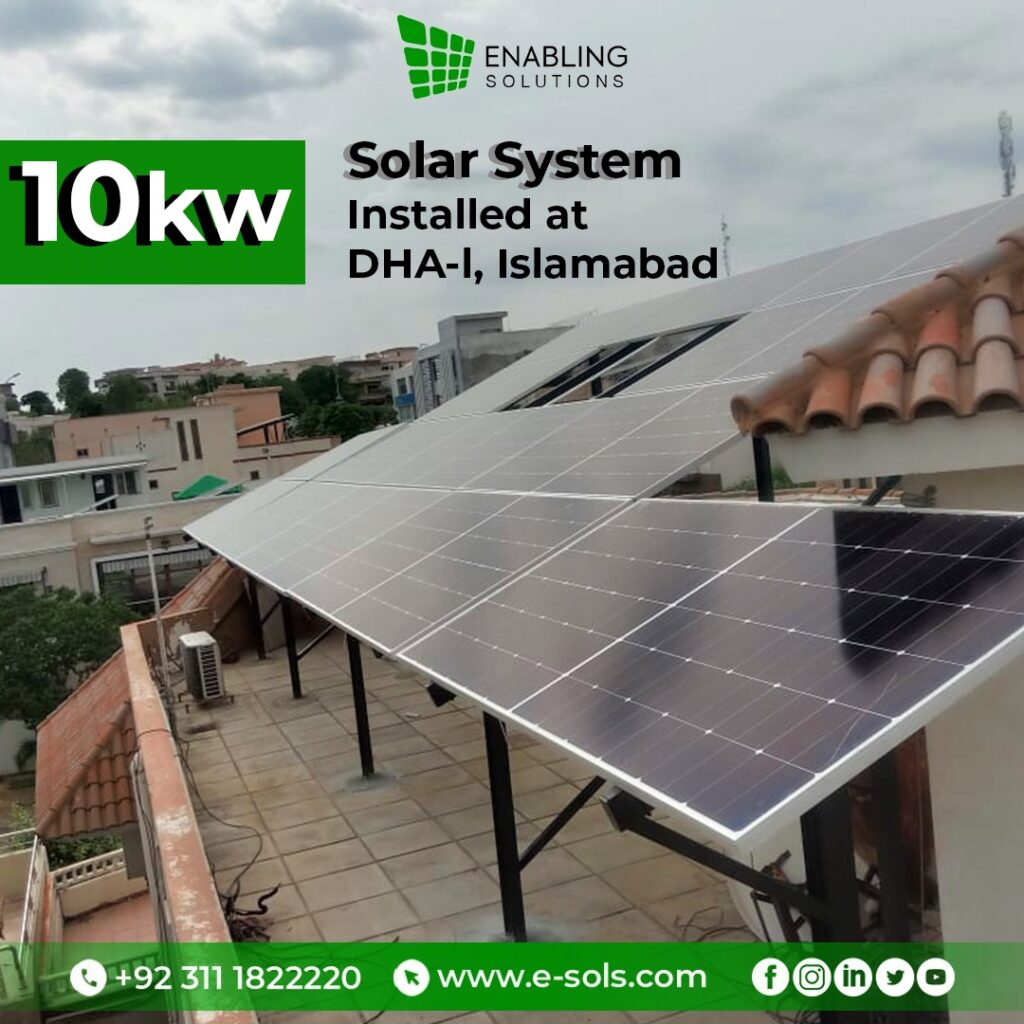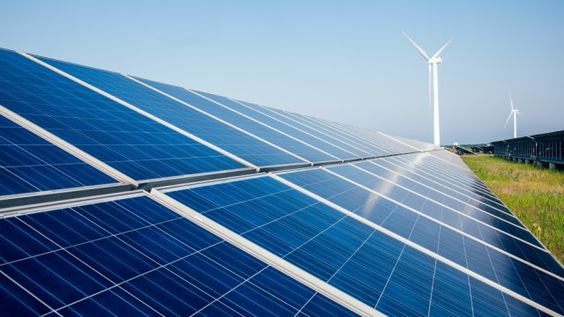The Cost of Solar System in Islamabad and Lahore
In this article, we will explore the facts and factors influencing the cost of solar system in Islamabad and Lahore, two major cities of Pakistan, shedding light on the benefits and considerations for potential solar energy adopters. Solar energy is becoming increasingly popular in Pakistan as people are looking for ways to reduce their carbon footprint and save money on their electricity bills. As the world increasingly shifts towards sustainable energy sources, solar power has emerged as a promising solution.
In Pakistan, cities like Islamabad and Lahore have witnessed a growing interest in solar systems as an alternative to traditional energy sources. But at the same time, we will discuss the cost of solar system Islamabad and Lahore as well. these cities are the metropolitan cities of Pakistan, therefore high level of energy is required to fulfill daily business tasks.

Table of Contents
Factors Affecting the Cost of Solar Systems
Before we dive into the cost of solar system in Islamabad and Lahore, it is important to understand the factors that affect the cost. The cost of a solar system depends on several factors, including:
- The size of the system
- The quality of the components
- The installation cost
- The type of solar panels used
- Installation Complexity / The location of the installation
- Solar Panel Efficiency
- System Capacity
- Government Incentives and Subsidies
- Local Market Dynamics
- Return on Investment
The size of the solar system
Solar systems come in various types and sizes, catering to different energy needs. The cost of a solar system in Islamabad and Lahore depends largely on its capacity and features. In Islamabad and Lahore, both residential and commercial solar systems are available, ranging from small rooftop installations to large-scale projects. Prices differ based on the system’s size, efficiency, and the components included, such as solar panels, inverters, batteries, and mounting structures.
Enabling Solutions is providing residential, commercial, industrial, agricultural and net metering & solar services at market competitive prices. The most renowned and dynamic company known for its professional services in the twin cities and Lahore. Enabling Solutions has delivered 300+ projects in the recent years and leaving customers happy and satisfied.
The quality of the components
The quality and brand of solar panels, inverters, and batteries play a crucial role in the system’s performance and longevity. Higher-quality components may be costlier initially but offer better reliability and efficiency in the long run.
Installation Complexity/ The location of the installation
Factors such as the roof type, shading, and wiring complexity can affect installation costs. A thorough assessment of the property is necessary to determine the installation requirements and associated expenses.
Solar Panel Efficiency
High-efficiency panels generate more electricity and tend to be pricier, although they offer better long-term returns on investment.
System Capacity
The size of the solar system determines its price. Larger systems with higher capacities will cost more, but they can also meet greater energy demands.
Government Incentives and Subsidies
In recent years, the Pakistani government has introduced several incentives and subsidies to promote solar energy adoption. These initiatives aim to reduce the financial burden and make solar systems more accessible to the public. Potential buyers should explore the various schemes available, such as net metering and solar financing programs, to understand the financial benefits they can leverage.
Local Market Dynamics
The price of solar systems can vary within different regions and markets. In Islamabad and Lahore, the presence of multiple solar installers and suppliers leads to healthy competition, ultimately benefiting consumers. It is advisable to research and compare prices from different vendors, considering their reputation, customer reviews, and after-sales service quality.
Return on Investment
While the upfront cost of installing a solar system may seem significant, it is essential to consider the long-term financial benefits. Solar energy can significantly reduce or eliminate monthly electricity bills, leading to substantial savings over the system’s lifespan. Additionally, excess energy generated can be fed back into the grid, earning credits or monetary compensation through net metering programs.
The Cost of Solar System in Islamabad
The cost of solar system in Islamabad varies depending on the size of the system and the quality of the components used. On average, a 3kW solar system in Islamabad can cost between PKR 300,000 to PKR 400,000. However, the cost can be higher or lower depending on the factors mentioned above.
It is important to note that the cost of solar systems in Islamabad has decreased over the years due to the increasing demand for solar energy. As more people are switching to solar energy, the cost of solar systems is expected to continue to decrease.

The Cost of Solar System in Lahore
The cost of solar systems in Lahore is similar to Islamabad and varies depending on the size of the system and the quality of the components used. On average, a 3kW solar system in Lahore can cost between PKR 300,000 to PKR 400,000.
Similar to Islamabad, the cost of solar systems in Lahore has also decreased over the years due to the increasing demand for solar energy. As more people are switching to solar energy, the cost of solar systems is expected to continue to decrease.
Pakistan is a country that relies heavily on energy sources such as oil, gas, and coal. However, these resources are becoming increasingly expensive and unsustainable. This has led to the need for alternative forms of energy production such as solar power. In this article, we will explore the importance of solar energy in Pakistan and its cost.
Costs Associated With Installing Solar Panels
As we are discussing the cost of solar system in Islamabad and Lahore, the installation cost of solar panels can vary on different factors, such as :
Initial Investment Costs
As mentioned earlier, while investing into a photovoltaic system might initially appear costly; however after factoring all associated expenses including installation fees plus materials required etcetera – one could expect total expenditure ranging anywhere between PKR 50k-200k depending upon size & type chosen along with quality components being employed within setup itself (i..e inverters/batteries etc.).
Maintenance Expenses
Furthermore; once installed correctly – maintenance requirements remain minimal although regular cleaning should still take place every few months just ensure optimal performance remains intact overtime thus helping maximize return investments made upfront too!
Benefits of Solar Energy
The cost of Solar System in Islamabad and Lahore might seems high but in depth it is the need of time and one time expense. All the developed countries are focusing and promoting solar energy as its not only save bills but also make environment pollution free, clean and green. therefore the cost of solar system in Islamabad and Lahore should not make you worry as you’re not benefiting just yourself but playing major contribution to make environment pollution free.
Renewable Source
One major benefit of using solar energy is that it is an inexhaustible source of renewable energy which means it can never be exhausted or depleted like other fossil fuels. It also does not produce any greenhouse gases when used so it helps reduce air pollution levels significantly.
Affordable Price
Another great advantage of using solar power in Pakistan is its affordability compared to traditional fuel sources such as oil or gas. The initial investment may seem high but over time you can save money by reducing your electricity bills due to lower consumption costs from renewables than conventional sources. Additionally, government subsidies make installing photovoltaic systems even more affordable for households across the country who want to switch to clean energies instead of relying solely on non-renewables like coal or natural gas.
Reliable Power Supply
Finally, another key benefit associated with utilizing solar panels in Pakistan is their ability to provide reliable power supply throughout the year regardless if there’s sunshine available or not since they store excess electricity during sunny days which can then be utilized at night times when needed most without having any interruptions whatsoever unlike other fuel types where availability depends largely upon weather conditions outside (i.e., windy/rainy).
Conclusion
In conclusion, the cost of solar system in Islamabad and Lahore varies depending on several factors such as the size of the system, the quality of the components used, and the installation cost. On average, a 3kW cost of solar system in Islamabad and Lahore can fall between PKR 300,000 to PKR 400,000. However, it is important to note that the cost of solar system in Islamabad and Lahore has decreased over the years due to the increasing demand for solar energy. As more people are switching to solar energy, the cost of solar systems is expected to continue to decrease in the future.
All things considered – utilization & adoption rates regarding harnessing sun’s rays via PV technology have been steadily increasing here within Pakistani market recently thanks mainly towards various incentives offered by respective governments coupled alongside rising awareness amongst general public about benefits derived through switching away from polluting non-renewable alternatives currently dominating majority nation’s electrical grid network today.






